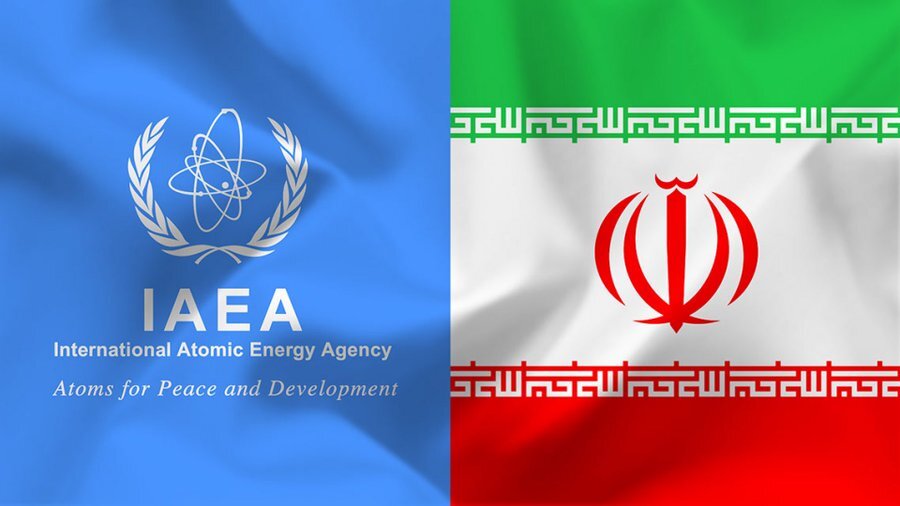TEHRAN – Iran’s Ministry of Atomic Energy (AEOI) issued a strong joint statement on Saturday, denounced the latest report on the International Atomic Energy Agency (IAEA) nuclear program as a politically motivated distortion of facts.
A statement in response to the IAEA Director Rafael Grossi document dated May 31, 2025 (GOV/2025/25) claims that Western countries are using nuclear agencies to advance their anti-Iranian agenda, reaffirming their unwavering cooperation with the IAEA.
It directly accuss the UK, France, Germany (E3) and the US of “repeated breach of their commitments under the Joint Comprehensive Action Plan (JCPOA) and UN Security Council Resolution 2231.”
The statement also shows the imposition of “illegal, unilateral sanctions” and pressures that are inconsistent with international law.
Emphasizing the November 2024 IAEA Governor’s Conference, Iran points out that these countries have pushed a resolution against it despite the constructive consequences of Grossi’s visit to Tehran.
“This political and unfair behavior failed to attract support from many IAEA members and exposed the sponsor’s disruptive approach,” the statement declared.
Iran has emphasized extensive cooperation with the IAEA, including hosting Grossi twice and hosting the Deputy Director of Safeguard twice in recent months.
However, the report fails to reflect this reality and laments its reliance on “manufactured documents provided by the Zionist regime” to recycle “bassed and malicious accusations” for past activities.
“Iran has repeatedly stated that there are no undeclared nuclear locations or activities,” the statement emphasizes that Tehran has granted access to suspicious sites, allowed sampling, and provided detailed explanations.
The statement also defends the rights of Iran’s sovereign rights. It is considered “completely consistent” with a comprehensive safeguard agreement, for example, revoking the designation of a small number of IAEA inspectors.
The report points to misrepresenting the voluntary JCPOA commitment as a binding obligation, a distortion not supported by the IAEA basic document.
Repeating Iran’s unchanging position, the statement emphasized that “there is no place in Iran’s defense doctrine” just as nuclear weapons are being enshrined by the leader of the Islamic Revolution, Ayatollah defended Ali Khamenei.
They confirmed Iran’s “intransferable rights to peaceful nuclear technology,” including enrichment, which is fully monitored under the comprehensive safeguard agreement.
In a harsh warning, Iran warns that if its cooperation is misused for political purposes, “the Islamic Republic will take appropriate measures to protect its right and interest in being liable.”
The rebuttal follows an IAEA confidential report, some of which have been leaked to western media, claiming that Iran’s stockpile concentrated to 60% purity reached 408.6 kilograms, an increase of 50% since February.
The report labels Iran as the only nuclear-free armed state that produces such materials, calling it a “technical step” from arms-grade uranium.
However, Iranian officials have emphasized that 60% enrichment supports civilian needs such as medical radiation and research reactors, far below the 90% militarization threshold. Nuclear experts reflect this and dismiss Western vigilance as unfounded.
The IAEA report also ed old allegations of “undeclared activity” at Lavisan-Shian, Varamin and Turquzabad, claiming it was marked by the early 2000s.
Tehran has long rejected these as processed intelligence from hostile states, resolved several years ago, and the IAEA itself has not confirmed the detour of nuclear material for military purposes.
The timing of the report has been invisible for nearly 20 years, in line with Reuters’ revelation that the Western countries are urging the IAEA to declare Iran in violation of its obligations.
This is in talks to revive indirect Iran’s nuclear deal, suggesting coordinated efforts to derail diplomacy.
Israeli Prime Minister Benjamin Netanyahu struck the report, “confirming” Iran’s nuclear intent and urged global action.
The report also suggests possible adjustments between the IAEA and anti-Iranian elements. In particular, the well-known ambitions of IAEA Director Rafael Grossi to secure the position of UN Secretary-General appear to coincide with the broader geopolitical agenda.
A report by the Tehran Times from April shows that E3, which is unhappy with exclusion from indirect nuclear negotiations between Iran and the US, has turned to the prospects of snapback sanctions as leverage against Iran.
London, Berlin and Paris reportedly support Grossi’s bid for the top UN jobs, and effectively trades support for his cooperation in moving forward the anti-Iranian agenda.
Earlier on Saturday, al-Mayadeh cited Iranian sources and said E3 had put pressure on the IAEA for negative reviews that were not attached to Tehran’s well-intentioned gestures.
The campaign is beyond recent cooperation with the US and aims to justify snapback sanctions based on the 2015 deal. During negotiations in Istanbul, Tehran warned E3 representatives that the IAEA escalation would cause rapid consequences for nuclear diplomacy.
“As E3 moves through with snapback options, everything will change. Iran’s nuclear policy will change completely,” the source warned.
Nevertheless, Iran argues that diplomacy is still feasible if Europe abandons its “irresponsible pressure tactics.”

